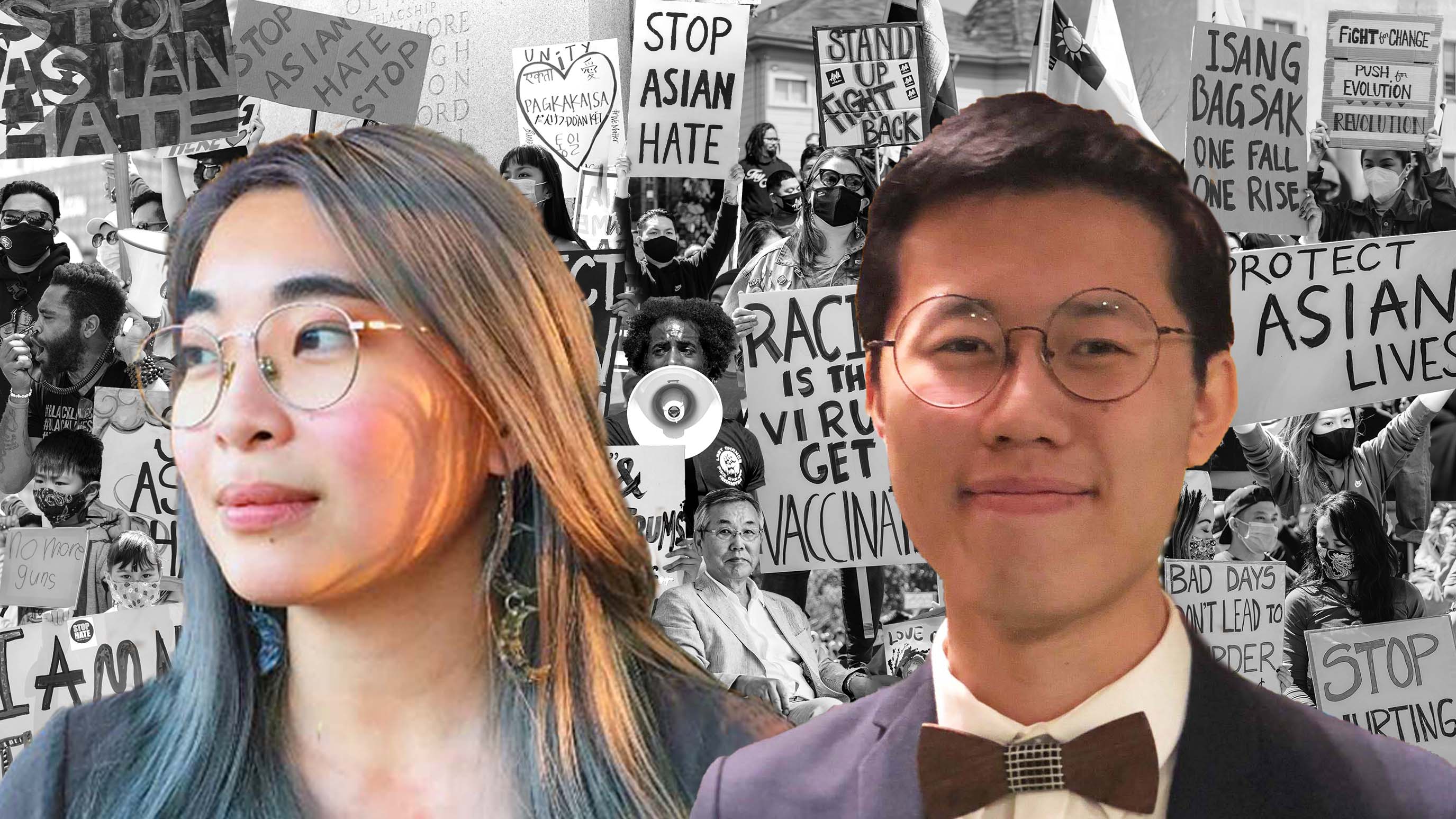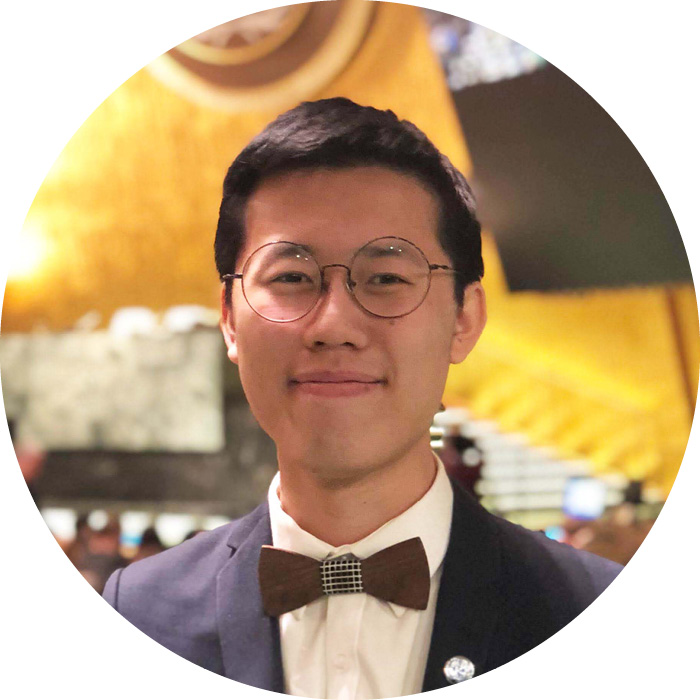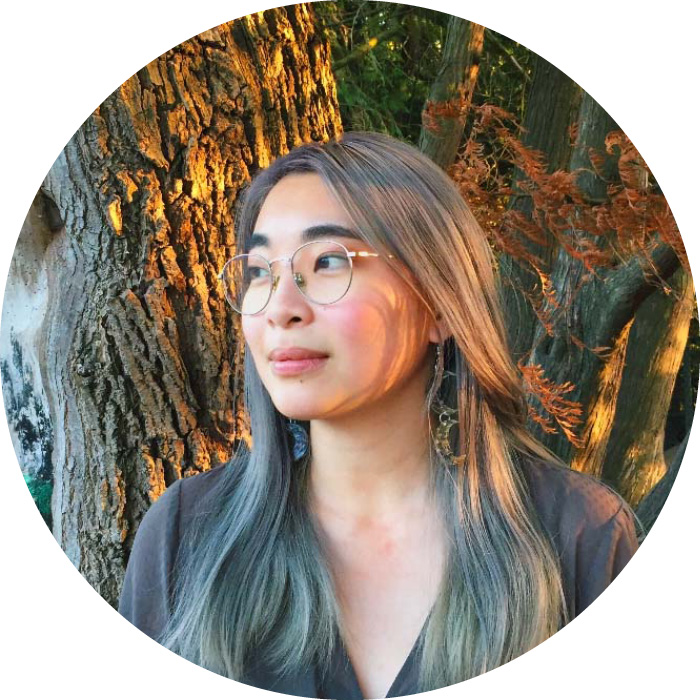

Amanda Wan (left) and Patrick Leong (right) were two UBC Arts students whose significant contributions made UBC's National Forum on Anti-Asian Racism possible.
When students in the Faculty of Arts apply the critical lens they’ve developed in the classroom to systemic issues beyond the academic world, they gain the confidence and courage to contribute to important conversations that affect us all.
In June, UBC hosted the National Forum on Anti-Asian Racism. With the aim of intergenerational knowledge exchange and moving forward together against anti-Asian racism in Canada, the forum would not have been possible without the critical contributions of UBC students, who acted as speakers, moderators, and organizers.
“[Students] are the ones who are actively shaping society by engaging in dialogue and actions to change programs and policies,” says Diana Jung, a Health Promotion Specialist with Student Health and Wellbeing, who played a key role in organizing the event. “This opens the doors for mentorship and learning from those who came before them so that students can continue the fight for a more inclusive future.”
History alumnus Patrick Leong (’21) and English Language and Literatures MA candidate Amanda Wan were two of the many students whose contributions were instrumental to the success of the National Forum. Read on to find out how they contributed as UBC students, the advice they have for getting involved, and what they learned about themselves through the experience.
Patrick Leong


Patrick Leong
Why was it important for you to get involved in the National Forum on Anti-Asian Racism?
Anti-Asian racism has historically been embedded in our society and institutions. I felt it was important to support and participate in the National Forum and have a frank discussion on anti-Asian racism in Canada and what we can do about it. Francophone Asian Canadians are often forgotten during national dialogues like the Forum. I wanted to spur more engagement between Anglophones and Francophones of Asian descent, and so we can have more conversations about anti-Asian racism in Francophone contexts.
How did your academic studies as a student in the Department of History make your participation in the National Forum meaningful?
My interest in History as a discipline was first sparked by learning about my own family’s history. My paternal great grandfather immigrated during the height of the Exclusion Era, and generations of my family afterwards have experienced discrimination in the country they called home.
“My undergraduate studies in History helped me reframe my family’s history through the lens of resistance. Chinese Canadians have faced exclusion throughout their history here, but they have also stood up to white supremacy at every turn.”
Growing up in Ottawa, I learned to see Canada through rose-coloured glasses. At UBC History, I have been personally unlearning that idealized image of Canada, especially with regard to our foundations in settler-colonialism and genocide. Although we face discrimination, Asian Canadians are still settlers on this land, and so dismantling white supremacy must come hand-in-hand with reconciliation and decolonization.
What advice do you have for students who are thinking about applying themselves to similar endeavours, but need some convincing to get involved?
As students, our voices are so important. In every generation, youth are at the forefront of change-making and pushing for progress. Endeavours such as the Forum might seem daunting, but everyone will appreciate listening to your perspective!
If you had told me last year that I would be a panelist at the National Forum on Anti-Asian Racism, I wouldn’t have believed you. It was a great way to finish my time at UBC and build on all that I have learned throughout my undergrad.
Amanda Wan


Amanda Wan
Why was it important for you to get involved in the National Forum on Anti-Asian Racism?
It was important for me to share the capacity for critical imagination that I’ve been able to cultivate thanks to countless collaborations, conversations, and moments I’ve shared with people in my life, who have taught me about community organizing, relationships, or power. It was important to me to show up and contribute what I could to the conversation, and to listen deeply and be present for other participants as they shared their insights and reflections.
How did your academic studies as a graduate student in the Department of English Language and Literatures make your participation in the National Forum meaningful?
Because of my training and privileges as a graduate student in the Department of English Language and Literatures, I’ve had access to generous scholars and instructors at UBC. With their help, I have been able to facilitate connections where they are not always the most obvious or require some deepened imagination; or, to acknowledge disconnects and slippages within things we treat as mundane, obvious, or given.
“When I reflect on the parts of graduate education that I’m most grateful for, and that I feel have prepared me for so many different ways of thinking about and doing things, I think about all the instructors and peers who have shown me how to have critical discussions that are conditioned by generosity and reciprocity. Through them I continue to learn deep listening.”
What advice do you have for students who are thinking about applying themselves to similar endeavours, but need some convincing to get involved?
I would say to reflect on who you are or would like to be in community with, and go from there. Community organizing needs to be built through trust, reciprocity, and care, in order to meaningfully transform conditions of oppression and domination. The very ways we conceptualize relationships, care, and love are not untouched by conditions of colonialism or power more generally. It can be as simple as asking yourself, “How do I create more trusting, reciprocal, and caring relationships with the people I am connected to in order to truly build community?”
Amanda Wan is a second-year MA candidate in the Department of English Language and Literatures with research interests in critical race, gender, and sexuality; postcoloniality; aesthetics, and techno-Orientalism, among other topics. They are also the Community Engagement and Events Coordinator at the Asian Canadian and Asian Migration program.
Patrick Leong is a recent Faculty of Arts alumnus who completed his BA in History Honours and International Relations. Patrick wrote his History Honours thesis on the anti-W5 movement of 1979-1980, which was a national anti-racist movement led by Chinese Canadians.


